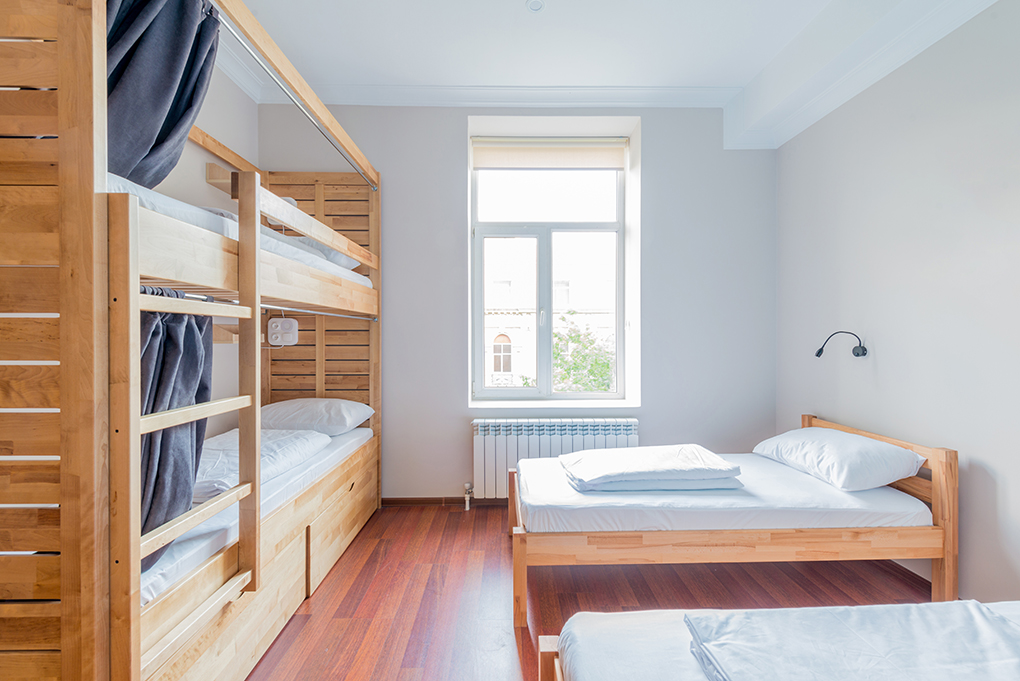
College students are universally known for being sleep deprived, with more than 70% of students reporting they don’t get enough sleep on a daily basis. From noisy roommates to lumpy dorm mattresses, there are plenty of factors that can make it difficult to get a good night’s rest in a college dorm.
Thankfully, you don’t necessarily have to live up to the stereotype. If getting quality sleep is a priority for you, there are ways to help. Here are some simple tips and tricks to help you improve the quality of your sleep and wake up feeling well-rested, even in the chaos of dorm life.
1. Create a Consistent Sleep Schedule
Your body craves routine. Going to bed and waking up at the same time every day helps regulate your internal clock, making it easier to fall asleep, stay asleep, and wake feeling rested. While college life can be unpredictable, try to stick to a schedule as often as possible—even on weekends.
This consistency trains your body to recognize when it’s time to wind down and when it’s time to start the day, which can significantly enhance the quality of your rest.
2. Ditch the Dorm Mattress
College dorms aren’t known for having the most comfortable mattresses and furniture. If you’re able to, swap the provided mattress with one that suits your preferences. If you’re not sure what kind of mattress you like, go to a mattress store to try some out or purchase one from a company that allows you to have an extended sleep trial.
Dorm beds can be differently sized from your standard twin bed. Tochta is a perfect solution for your custom-sized bed needs. With their easy-to-use online mattress builder, you simply enter the dimensions you need and choose a mattress style you like. It comes shipped to you (for FREE!) factory direct from Southern California, usually within two weeks or less. And it arrives rolled in a box so you can conveniently carry it to the dorm room!
3. Get the Right Pillows for Your Sleeping Style
Side sleepers, back sleepers, and stomach sleepers all need something different out of their pillows. If your neck and body protest every time you wake up, then you might need a new combination to get you through the night.
Side sleepers tend to benefit from thicker, firmer pillows to keep the neck aligned, while back sleepers often prefer medium-firm support. For stomach sleepers, a softer, thinner pillow is best. A good pillow can drastically improve your sleep quality and eliminate those pesky morning aches.
4. Reduce Your Caffeine Intake Before Bed
All-nighters and overwhelming test schedules can lead to a reliance on caffeine to get through the day. But while coffee and energy drinks might be fueling your study sessions, they can also wreak havoc on your sleep.
Studies show that consuming caffeine even six hours before bedtime can significantly disrupt your sleep patterns. To avoid caffeine-related sleep issues, try to limit your intake after 3 pm and opt for decaffeinated beverages in the later hours. Or at least, save the late-night coffee runs for study cram sessions only.
5. Pick Up a White Noise Machine or App
Stuck on the party floor at the dorm or have roommates with world-record snores? Dorm walls can be paper-thin, so it’s easy for late-night chatter or hallway commotion to disrupt your sleep.
A white noise machine or app neutralizes these disruptive sounds and can lull you to sleep as the consistent sounds give your brain something to focus on. Mynoise.net is a particularly good online source for white noises, especially if you want something outside of the standard offerings—or try the popular Hatch white noise machine for a physical option.
6. Avoid Studying Too Close to Bedtime
Cramming for a test right before bed might seem productive, but it can make it more difficult to fall asleep. The stress and stimulation from studying too close to bedtime can keep your mind racing and leave you feeling wired even after you lay down for the night.
Instead, set a cut-off time for studying—at least an hour before you plan to sleep. Use this time to relax, read, or enjoy a calming evening ritual to signal your brain that it’s time to wind down.
7. Communicate with Your Dorm Mate
Sharing a room can make sleep tricky during college, especially if your dorm mate has a wildly different sleep schedule or habits. Open communication is critical.
Have a conversation to establish boundaries—for example, quiet hours after a certain time or using headphones for late-night activities. Respect goes both ways and setting these expectations early can create a more harmonious living environment.
Upgrade Your Dorm Sleep Experience with Tochta
A good night’s sleep isn’t just a luxury—it’s a necessity. Quality rest enhances memory, boosts focus, and improves overall health, which are all crucial for a successful college experience.
If you’re ready to make sleep a priority while you’re in college, consider upgrading your dorm bed with a custom mattress from Tochta. Customizable to your needs and built with comfort in mind, a Tochta mattress ensures you sleep well, even in the busiest of dorm environments. Take the first step toward better sleep today by exploring Tochta’s custom-fit mattresses!




